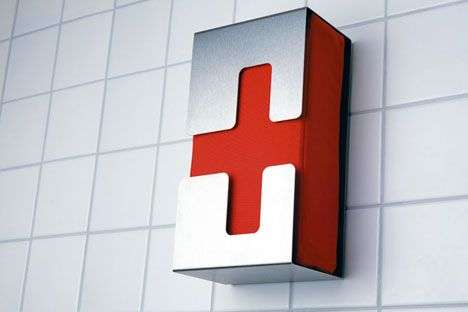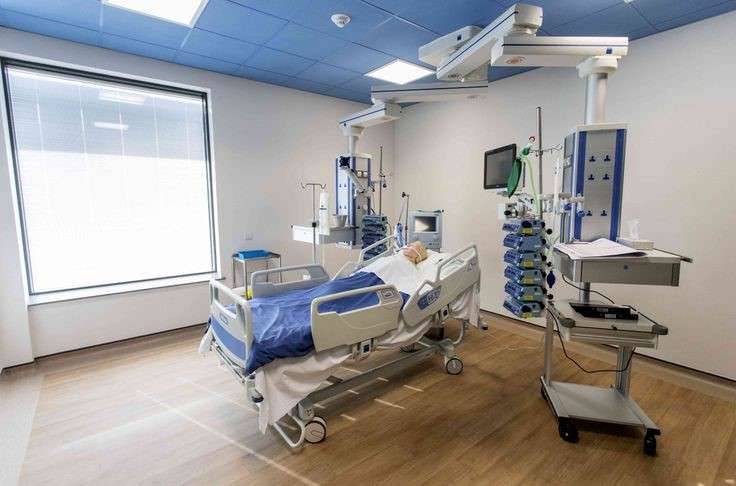
Hospital consultants 6 ways they can help you.
October 28, 2022
“Cost-Effective Healthcare: Top 5 Strategies for Hospital Budget Management”
December 14, 2022Many healthcare professionals have the dream of starting a multi-speciality hospital of their own in which they can provide a whole assortment of services to patients under a single roof without any compromise on quality. However, in today’s era of down-sizing and cost-cutting, it becomes prudent to outsource some services to reliable associates in order to ensure that the healthcare venture stays viable and profitable in the long run.
Which departments can be commonly outsourced in a hospital
1. Administration and other support services
There is a plethora of administrative work in a hospital like maintenance of records, appointment listing, bill payment and collection, settling of insurance claims, making discharge summaries etc. These are outsourced by many hospitals to experienced partners in order to prevent overburdening the staff so that they are free to do their core duties.

2. Laboratory services
Every hospital has to have a laboratory service for diagnosis and detection of illnesses. Setting up a lab in the premises necessitates allotment of a designated space, recruitment of skilled technicians, investment into expensive and bulky equipment like centrifuge machines, incubators, freezers etc. Stringent quality assessments also have to be periodically carried out to leave no room for error because the diagnosis and the course of treatment and therefore the recovery all depend upon the test results.
If a hospital does not have the space and resources for a laboratory, these services can be outsourced to a reliable and reputed laboratory chain. This can also give access to a variety of specialized and advanced tests.

3. Diagnostic centres
Medical equipment like MRI machines, X ray machines and CT machines are bulky, heavy and expensive. They have to be upgraded with any change in technology. Housing them in-house can lead to skyrocketing costs and burgeoning accountability as they need large temperature-controlled rooms with reinforced floors and sound-proof walls. They also require skilled technicians to operate them and periodic maintenance. Employment of qualified radiologists to interpret the results also becomes essential. Unless the hospital is a trauma centre where reports are required without any scope for delay, this service can be outsourced to a trustworthy diagnostic centre so that reliable reports are speedily obtained without having to invest capital in setting up this department.
4. Emergency department
Not all hospitals have the necessary assets for an emergency department because it entails the recruitment of skilled workforce who can function under a lot of stress speedily and efficiently. This team has to be trained to handle any emergency with fortitude and presence of mind. Portable X-ray machines, emergency equipment like oxygen cylinders, atrial defibrillators, ventilators etc. have to be kept ready in a trauma centre. Ambulance services, stretchers, and emergency parking facilities have to be available. If all this seems impossible due to space, budget or resource restraints; the emergency department service can be outsourced to a reliable agency.

5. Housekeeping, laundry and security
Cleanliness and sanitation are mandatory in a hospital to eradicate the spread of infections. Several hospitals do not employ their own housekeeping staff in order to cut down on recruitment, training and retainership costs. Instead, they outsource this function to a trustworthy agency which provides round-the-clock staff to maintain hygiene.
A hospital involves the accumulation of piles and piles of laundry, this is also generally outsourced to save space, money and water and energy bills.
Similarly, security services are outsourced to reputed agencies so that there is no compromise on safety.
6. Canteen services
Providing food to staff, patients, family members and visitors is done by the canteen of a hospital. This involves space allocation, gas lines, provision for kitchen space, stoves, microwaves and utensils, staff to cook, clean and serve etc…the list is endless. Instead of investing resources in this sphere, many hospitals outsource catering services to good hospitality agency that provide clean, nutritious and reasonably-priced meals.
7. Pharmacy and blood banks
Most big hospitals have a pharmacy within their premises to make it convenient for patients to buy their medicines. This service can be outsourced to a dependable pharmacy chain for the payment of a premium so that the liability of investing in large assortment of medicines, fear of them reaching their expiry, breakages, recruitment of trained pharmacists etc. is done away with.
The hospital blood bank is responsible for the procurement and the management of the hospital’s blood stock. This includes maintaining an inventory for each blood group. Blood banks also entail getting multiple licenses and approvals and screening. Instead, most hospitals tie up with reliable blood banks in the vicinity.

Allied patient services
Many hospitals provide additional services like diet and nutrition counselling, physiotherapy and rehabilitation, exercise and yoga guidance, counselling, reminder service for appointments etc. These can be easily outsourced so that patients get the advantage of the best with the least possible liability to the hospital.
Benefits of outsourcing
- Removes space constraints
- Lessens liability
- Eradicates need for recruitment, training and retaining skilled staff
- Reduces danger of depreciation and obsolescence of machinery and medical equipment
- Improves focus on core efficiencies like healthcare.
- Gives a chance to leverage expertise of highly-qualified and trained workforce without actually recruiting or training them.
Disadvantages
- Dependency on partner
- No in-house development of skills.
- Lack of control.
- More turn-around time as compared to in-house services.
- May lead to depletion in patient experience if partner is not efficient.
Things to factor in before outsourcing
- Choose your partner after careful scrutiny
- Keep stringent checks on quality
- Ensure that the partners follow quality SOPs to the letter
- Monitor their performance periodically
- Insist on upgradation of skills.
Thus, you can either make your hospital self-sufficient and incorporate all services from reception to pharmacy in it. This can give you stringent control over each aspect and the autonomy to run the whole hospital according to your own rules, but can also add to your liability. Plus, it may be next to impossible to build up expertise and infrastructure for some services to reach your standards of excellence. In such a scenario, it would be better to outsource certain departments to leading players in those specific fields and focus on your area of expertise; namely providing best possible healthcare to your patients. This delegation of non-focus services can ensure that you provide world-class care with limited liability.
If you need any assistance in outsourcing any of your hospital’s departments, be sure to consult Hospertz a leading healthcare consultancy firm of India.
Blog has been written by Dr. Vishal Jadhav, a veteran in the field of hospital consultancy with a rich experience of more than 20 years and founder of the Healthcare Consultancy Firm, Hospertz.
Dr. Vishal Jadhav, Director
hospertz@gmail.com
+91 9867712705/ 9820833149


